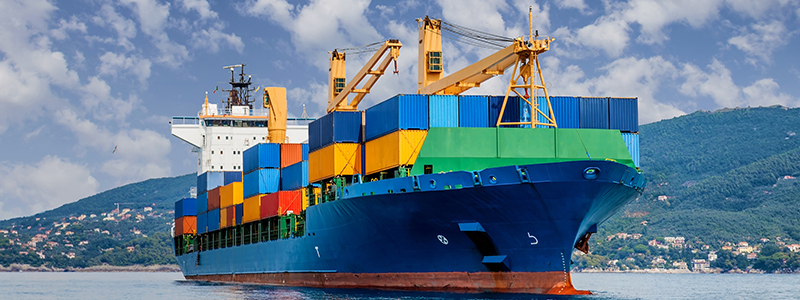
GoI to bring new law for merchant ships to protect marine ecology
The Dollar Business Bureau  The government is all set to bring in a new law for merchant ships to protect marine ecology. It is likely to introduce the Merchant Shipping (Amendment) Bill, 2015 to check the negative impact of ballast water discharge by cargo ships on the coastal ecology. The Union Cabinet chaired by Prime Minister Narendra Modi, on Wednesday, gave its approval for the introduction of the Merchant Shipping (Amendment) Bill, 2015 and accession to the “International Convention for the Control and Management of Ships' Ballast Water and Sediments, 2004,” a government statement said. The Bill will be implemented once it is passed in both the houses of the parliament. According to the international maritime convention, all new ships need to implement an approved ballast water and sediments management plan. The proposed legislation says that all new ships will have to carry a ballast water record book and follow the standard ballast water management procedures. Existing ships will be required to implement the procedure in a phased manner. “Ships are required to be surveyed and certified and may also be inspected by Port State Control officers who can verify that the ship has a valid certificate. They can also inspect the ballast water record book and in some situations, sample the ballast water,” the statement said. According to the proposed rule, Indian ships with 400 Gross Tonnage (GT) and above on global transit will have to carry an international ballast water management certificate. Ships below 400 GT plying within the territorial waters of India will also be issued an Indian ballast water management certificate. Ships which are not designed to carry ballast water, warships, naval auxiliary or other government-owned non-commercial ships are exempted from the ambit of the new rule. Port authorities will provide ballast water sediment reception facilities. Indian and foreign ships of 400 GT and above are required to carry on-board a ballast water management plan. Besides, ships of 400 GT above will also be inspected for ballast water regulation. However, the Bill clarifies that the sample analyzing process should not cause delay in the operation of the ship. And if a ship complies with the convention but is still delayed for inspection without any reasonable cause, it will be eligible for compensation. The Bill also has provisions for penalty on violation. There are no financial implications to the government. However, ports will charge ships for the use of such facilities. Ships, including cargo and cruise tanks, fill their ballast tanks with water to maintain weight balance during journey and while loading and unloading of goods at ports. Ballast water can pose risk for the marine species.
The government is all set to bring in a new law for merchant ships to protect marine ecology. It is likely to introduce the Merchant Shipping (Amendment) Bill, 2015 to check the negative impact of ballast water discharge by cargo ships on the coastal ecology. The Union Cabinet chaired by Prime Minister Narendra Modi, on Wednesday, gave its approval for the introduction of the Merchant Shipping (Amendment) Bill, 2015 and accession to the “International Convention for the Control and Management of Ships' Ballast Water and Sediments, 2004,” a government statement said. The Bill will be implemented once it is passed in both the houses of the parliament. According to the international maritime convention, all new ships need to implement an approved ballast water and sediments management plan. The proposed legislation says that all new ships will have to carry a ballast water record book and follow the standard ballast water management procedures. Existing ships will be required to implement the procedure in a phased manner. “Ships are required to be surveyed and certified and may also be inspected by Port State Control officers who can verify that the ship has a valid certificate. They can also inspect the ballast water record book and in some situations, sample the ballast water,” the statement said. According to the proposed rule, Indian ships with 400 Gross Tonnage (GT) and above on global transit will have to carry an international ballast water management certificate. Ships below 400 GT plying within the territorial waters of India will also be issued an Indian ballast water management certificate. Ships which are not designed to carry ballast water, warships, naval auxiliary or other government-owned non-commercial ships are exempted from the ambit of the new rule. Port authorities will provide ballast water sediment reception facilities. Indian and foreign ships of 400 GT and above are required to carry on-board a ballast water management plan. Besides, ships of 400 GT above will also be inspected for ballast water regulation. However, the Bill clarifies that the sample analyzing process should not cause delay in the operation of the ship. And if a ship complies with the convention but is still delayed for inspection without any reasonable cause, it will be eligible for compensation. The Bill also has provisions for penalty on violation. There are no financial implications to the government. However, ports will charge ships for the use of such facilities. Ships, including cargo and cruise tanks, fill their ballast tanks with water to maintain weight balance during journey and while loading and unloading of goods at ports. Ballast water can pose risk for the marine species.
This article was published on April 29, 2015 – 7:41 pm IST.






 to success.
to success.